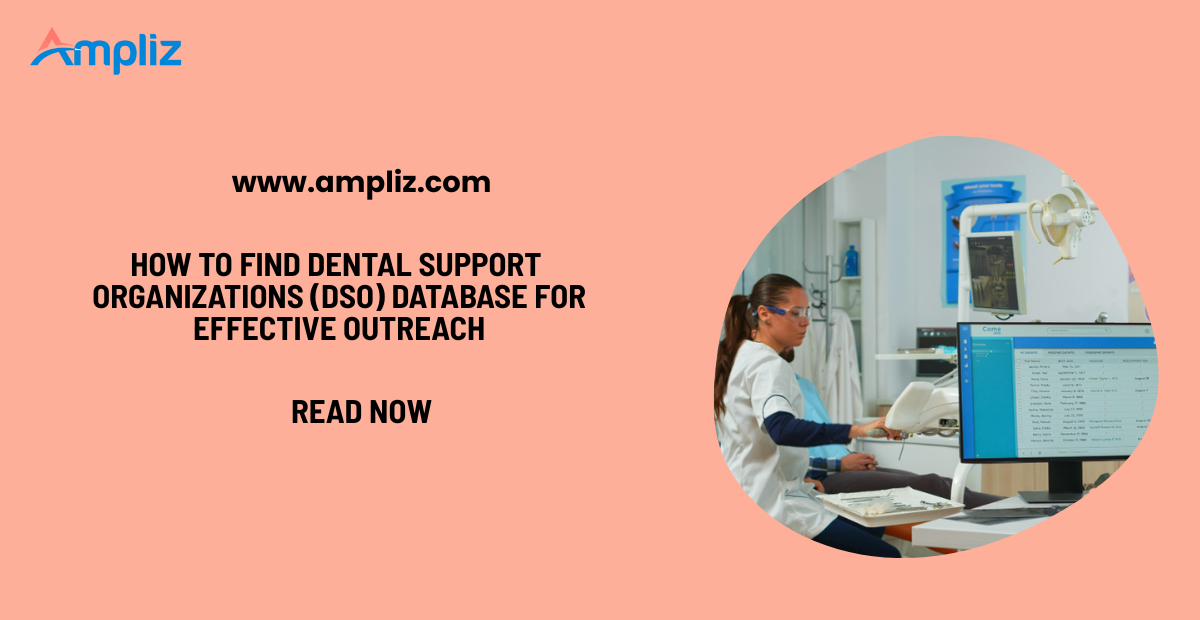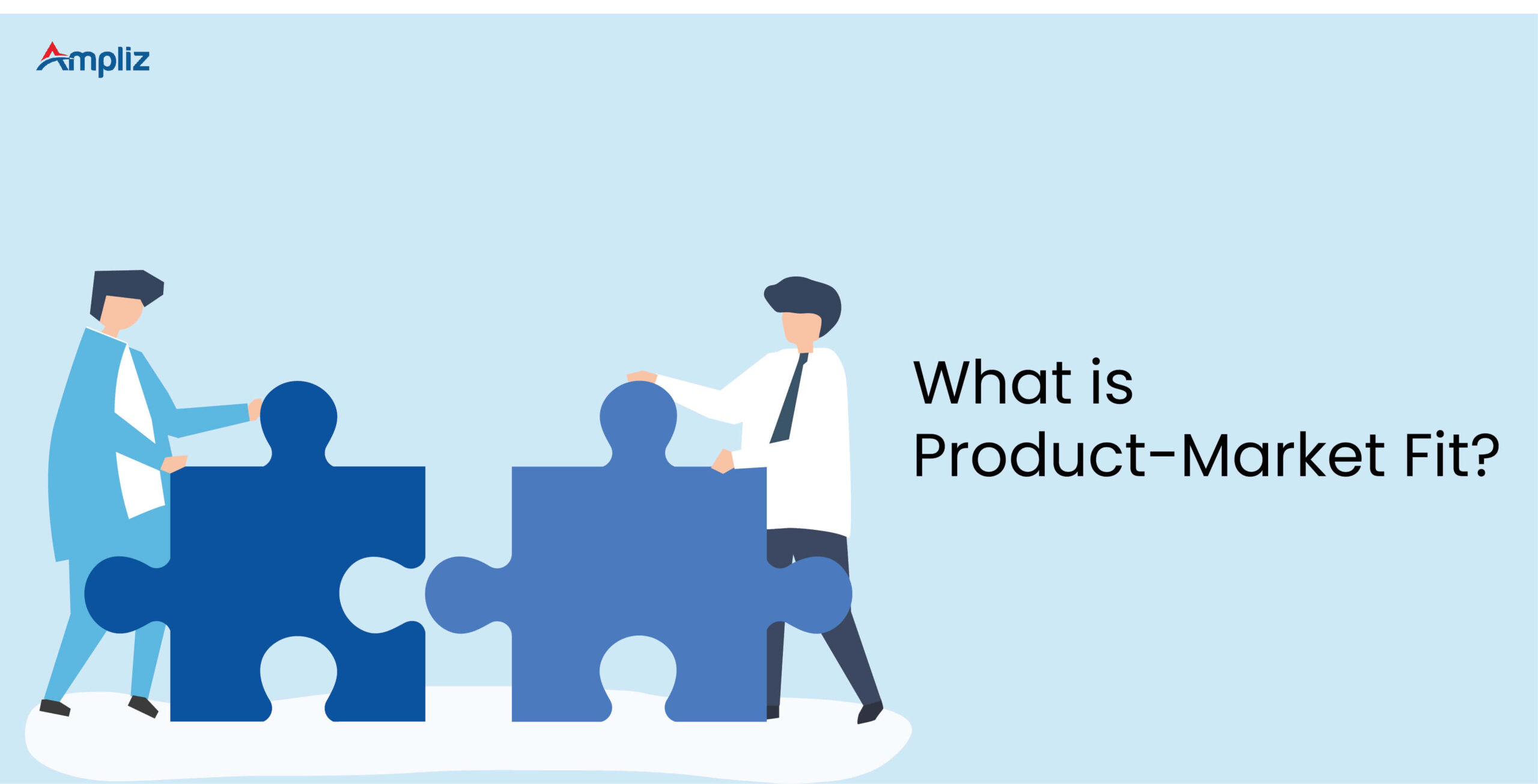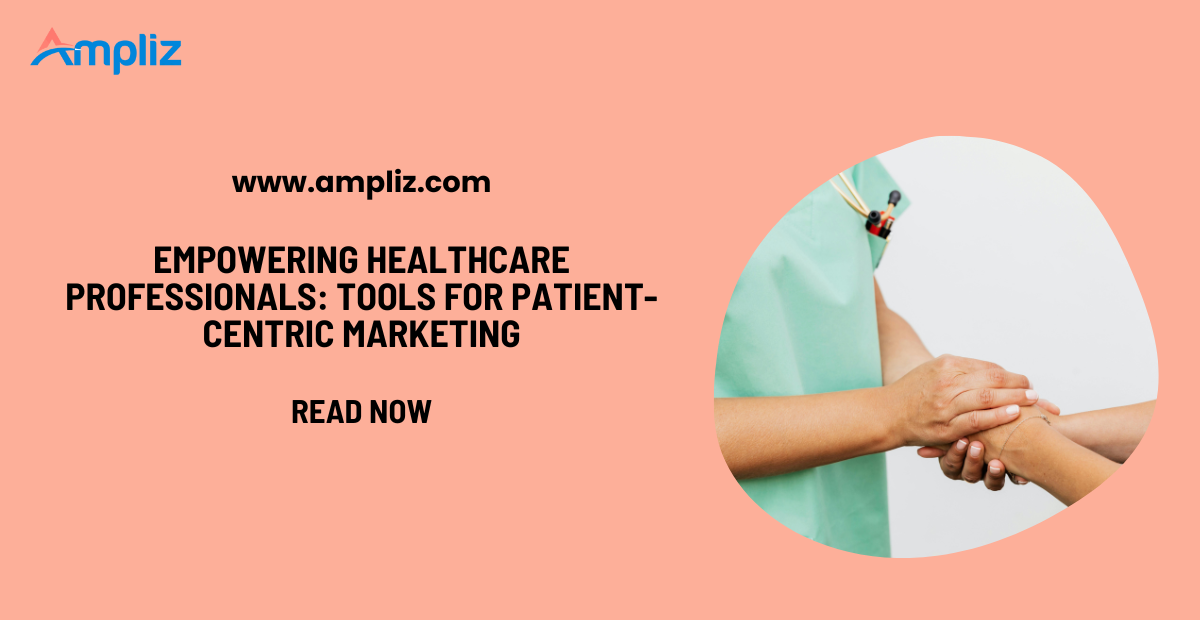How to Find Dental Support Organizations (DSO) Database for Effective Outreach

How to Find Dental Support Organizations (DSO) Database for Effective Outreach
In recent years, Dental Support Organizations (DSOs) have redefined how dental practices operate, scale, and deliver care. As DSOs continue to expand their networks and influence, marketers, vendors, and service providers are increasingly targeting them for sales and partnerships.
However, success in DSO outreach depends on one critical asset: an accurate and comprehensive DSO database.
If you’re looking to sell dental products, offer services, or promote healthcare SaaS to DSOs, this guide will show you how to find a DSO database, what features to look for, and how to use it effectively for marketing success.
What is a Dental Support Organization (DSO)?
Dental Support Organizations, or DSOs, are companies that provide business support to dental practices while allowing dentists to focus solely on clinical care. These organizations typically offer services like:
- HR and recruitment
- IT and technology support
- Billing and claims processing
- Procurement and inventory management
- Marketing and patient communication
DSO vs. Traditional Practice
| Feature | Traditional Dental Practice | Dental Support Organization |
|---|---|---|
| Ownership | Dentist-owned | Corporately owned/support-based |
| Decision-Making | Local | Centralized |
| Growth Model | One clinic at a time | Multi-location, rapid expansion |
| Example | Private dental clinic | Heartland Dental, Aspen Dental |
Today, over 30% of dentists in the U.S. are affiliated with a DSO, and this number continues to grow.
Why You Need a DSO Database
Whether you’re in dental equipment sales, healthcare SaaS, pharmaceutical distribution, or dental staffing, a DSO database is your gateway to scalable marketing. Here’s why:
Centralized Decision-Making
With DSOs managing multiple clinics, one decision can lead to multiple sales. You pitch once, but your solution could be implemented across dozens—or hundreds—of practices.
Niche, Yet Expansive Market
Targeting DSOs allows you to focus on a specific buyer group while tapping into a wide practice base.
Cost-Effective Outreach
By focusing on verified DSO contacts like CEOs, procurement heads, and operations managers, you reduce wasted spend on irrelevant leads.
Better Campaign Performance
Access to role-based, accurate contact info means higher open rates, lower bounce rates, and stronger ROI.
Challenges in Finding Reliable DSO Data
Finding a reliable DSO contact list isn’t as easy as doing a Google search. Some common challenges include:
Fragmented Online Sources
Many directories are incomplete, outdated, or only offer partial information (e.g., company name without contact info).
Lack of Standardization
DSOs vary in naming conventions, structures, and locations, making it hard to compile consistent data manually.
Compliance Concerns
Emailing healthcare professionals requires strict adherence to HIPAA and CAN-SPAM rules. Using unverified data can land your emails in spam—or worse, result in fines.
No Decision-Maker Visibility
Most free sources won’t show you who the actual decision-makers are, making outreach a guessing game.
Where to Find Dental Support Organization Databases
To create a strong outreach strategy, here are the main sources to explore:
1. Publicly Available Sources
a) American Dental Association (ADA)
- Offers directories of licensed dentists and practices.
- Limited filtering by DSO or corporate group affiliation.
b) State Dental Boards
- Some states list group practice affiliations or employer names.
- Requires manual extraction and cross-checking.
c) DSO Association Sites
- Organizations like the Association of Dental Support Organizations (ADSO) list members.
- May include top DSOs but without direct contacts.
2. Private Data Providers
To save time and ensure accuracy, it’s best to rely on trusted DSO database providers. These include:
a) Ampliz
- Focused on healthcare and dental data.
- Provides verified DSO contacts with roles, emails, phone numbers, and practice count.
- Custom filtering by specialty, region, revenue, etc.
b) Definitive Healthcare
- Broad healthcare provider data including DSOs.
- Deep insights but requires enterprise licensing.
c) ZoomInfo
- General B2B data platform with some DSO contacts.
- May lack dental-specific filters or role granularity.
d) Dykema DSO Directory
- Law firm offering annual DSO market data.
- Great for trend tracking, not direct outreach.
📌 Tip: Choose a provider with DSO-specific capabilities—not just general healthcare or dental lists.
How to Choose the Right DSO Database Provider
Before purchasing, ask these questions:
1. Is the Data Verified Regularly?
Check how often the provider updates its DSO listings. Quarterly or real-time updates are ideal.
2. Can I Filter by Role or Practice Type?
Look for platforms that let you narrow by specialty (orthodontics, endodontics), title (CEO, Procurement), and group size.
3. What Fields Are Included?
A good DSO contact record should include:
- Organization name
- Contact name
- Role/title
- Email address
- Phone number
- Number of locations
- Specialty focus
- Headquarters location
4. Does It Integrate with My CRM?
Exporting directly to Salesforce, HubSpot, or other CRMs saves time and reduces errors.
5. Are There Compliance Safeguards?
Ensure the provider follows HIPAA, GDPR, and CAN-SPAM laws.
Building a Custom DSO List Using Tools
With platforms like Ampliz Healthcare Intelligence, you can build hyper-targeted DSO lists based on:
- Geography: States, cities, or zip codes
- Practice Size: Small (2–10), medium (11–50), large (50+ clinics)
- Specialties: General dentistry, oral surgery, pediatric, ortho
- Contact Role: CEO, Marketing Head, Procurement, Dental Director
- Revenue or Patient Volume
🎯 Example: Find all DSOs in Texas with 20+ practices and a decision-maker in operations. Export the list and plug it into your email campaign tool.
Best Practices for Using a DSO Database
Getting the data is just the first step. Here’s how to maximize its value:
Segment Before You Send
Break your DSO list into logical buckets based on specialty, region, or role. Personalization increases response rates.
Use Multi-Channel Outreach
Combine email with:
- Cold calling
- LinkedIn connections
- Webinar invites
- Direct mail
Stay Compliant
Always include opt-out options and avoid sensitive or protected health information (PHI) in your outreach.
Measure and Optimize
Track open, reply, and bounce rates to clean your list and improve campaign results.
How Ampliz Helps You Find and Use DSO Databases
Ampliz offers a purpose-built DSO contact intelligence platform that goes beyond a simple directory.
Key Features:
- 100% verified contact information
- Advanced filtering (region, role, size)
- Real-time updates and enrichment
- DSO hierarchy insights (parent org + locations)
- CRM integration and API access
Benefits:
- Lower bounce rates with clean data
- Faster list building with intuitive filters
- Better outreach ROI with decision-maker insights
📞 Want to try it? Book a demo with Ampliz and see how fast you can build your DSO target list.
Conclusion
Finding a reliable Dental Support Organization (DSO) database is essential for scaling your marketing and sales efforts in the dental space. Whether you’re promoting software, services, or medical products, access to verified DSO contact data will empower your team to reach the right people at the right time.
Instead of wasting time on outdated directories or incomplete lists, partner with a platform like Ampliz that specializes in healthcare and dental intelligence.
Start targeting DSOs with confidence, clarity, and compliance—and unlock better ROI for every campaign.
Frequently Asked Questions (FAQs)
How many DSOs are there in the USA?
There are approximately 1,000+ DSOs operating in the U.S., managing over 30,000 dental practices.
Who are the key decision-makers in DSOs?
Common titles include CEO, COO, Procurement Manager, VP of Operations, Clinical Director, and Marketing Head.
What’s the difference between a DSO and a dental chain?
A DSO provides backend support to dental practices, whereas a dental chain may refer to a brand operating multiple locations directly.
Is it legal to email DSO contacts from a database?
Yes, provided the database provider ensures CAN-SPAM compliance and the data is used ethically with opt-out options.
Tags
Get In Touch
All Categories
- Assisted Living Facilities
- B2B
- B2B Companies List
- B2B Marketing
- Canada Physicians Data
- Chiropractors
- Datacaptive Alternative
- Dental Marketing
- Digital Marketing
- Email Marketing
- Guest Post
- Healthcare Email Lists
- Healthcare Insights
- Healthcare Marketing
- Healthcare Marketing, Sales and Trends
- Healthcare Startups
- Hospitals
- How To
- Locum Tenens Physicians and Nurses
- Long term Care
- lusha
- Marketing tools
- Medical Device
- Nursing Home
- Pharma
- Pharmaceutical companies
- Physician Groups By Speciality
- Physician Groups By State
- Physicians Database
- Psychiatrist Email List
- Recruitments Blogs
- Uncategorized
- US Healthcare Data
- US Hospitals
- US Physician Groups
- Zoominfo
Get Data Pricing
Request a quote for specialized healthcare and B2B datasets that actually convert.







